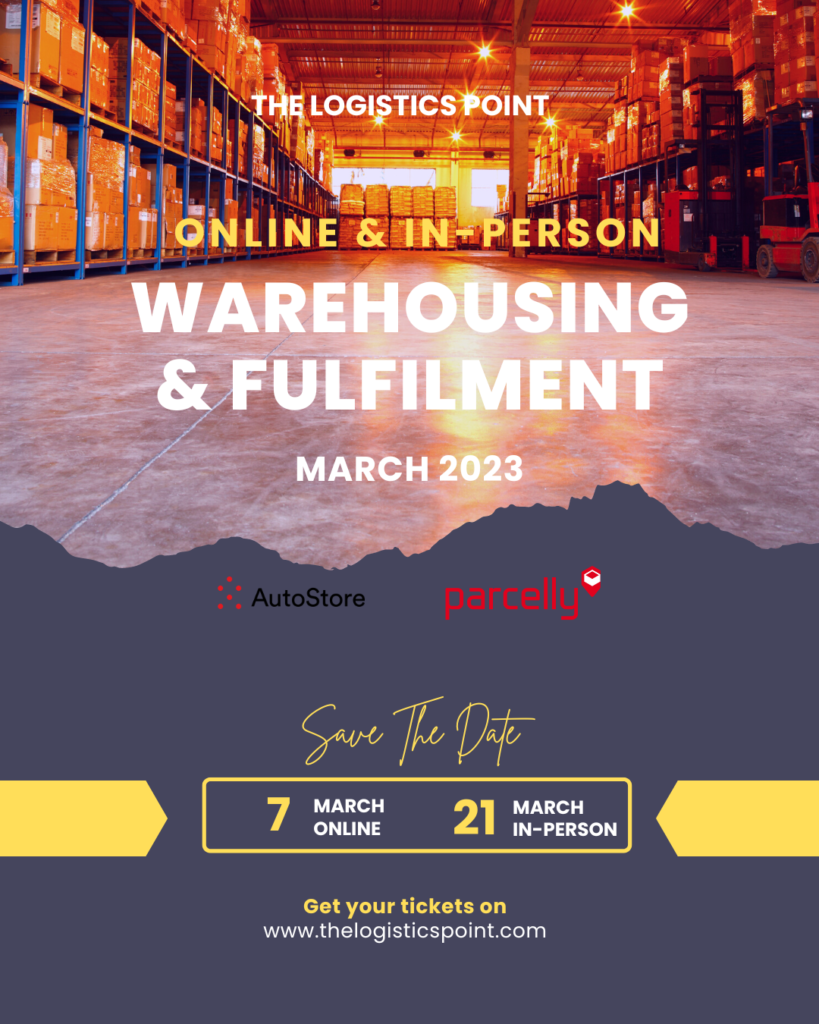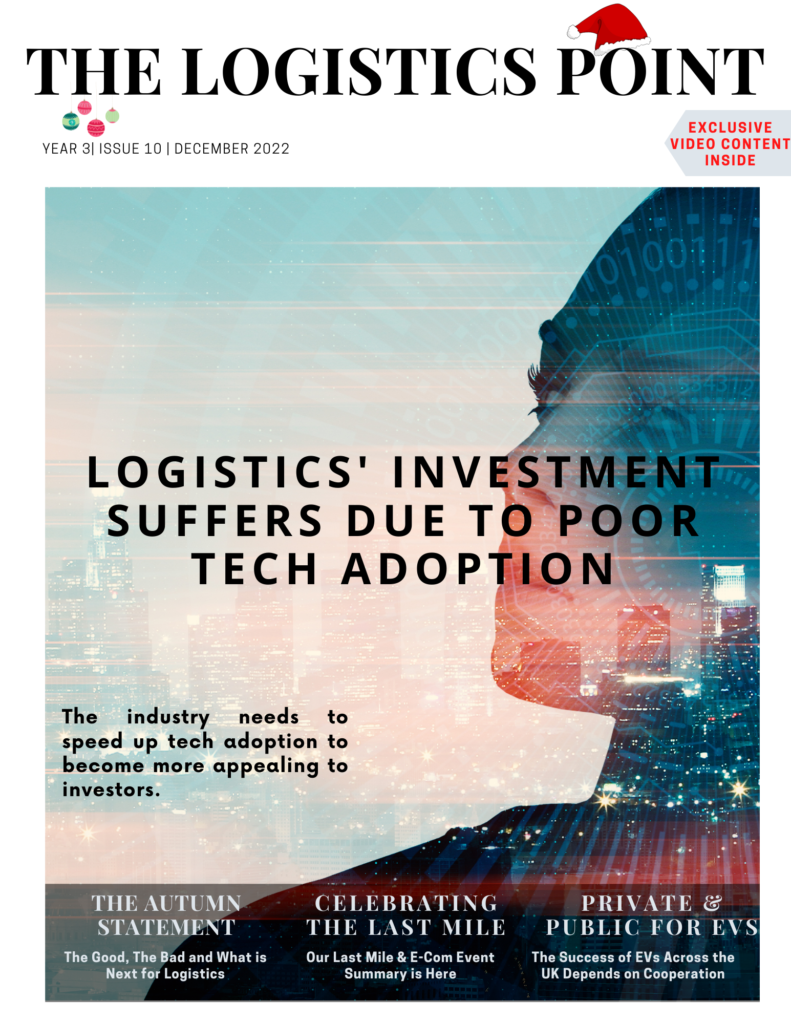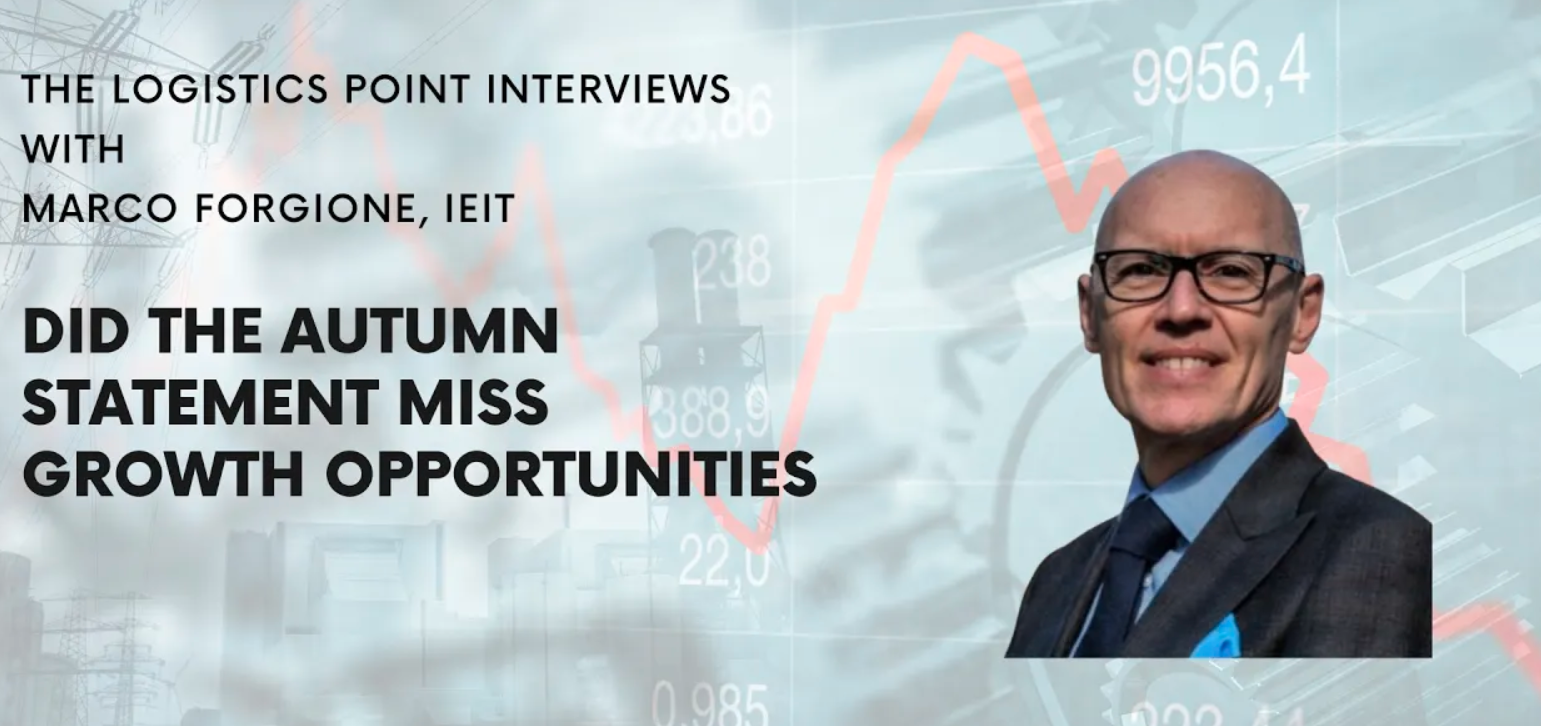The Autumn Statement by the Chancellor Jeremy Hunt was yet another large and important financial event this year. It managed to calm the markets down after a few very unstable weeks. But what else is there to the statement? We spoke to Marco Forgione, Director General at The Institute of Export & International Trade, who says UK businesses are not really getting much from the announcement. You can watch the full interview with Marco below at the bottom of the interview.

Marco, what are your overall thoughts about the statement? And how would it affect the logistics industry?
I think it’s clear that the Autumn Statement was actually a political statement focused at calming the markets, dealing with the problems caused by the previous chancellor and previous prime minister with their fiscal event. So the aim, I think it’s clear, was to steady the markets, which obviously, if we now look, seems to be a job done. The pound has risen, the gilt rates have dropped – now below the US rates, certainly on the ten year gilt. But in reality, there was very little for UK business.
When we look at the small print we discover that in March next year, there will be a significant rise in the fuel duty, something which wasn’t announced on the day.
That’s a really significant problem and has a great impact on the supply chain and logistics sector. Therefore, on the cost of goods at the shop, which of course has the risk of further driving inflation. So I think that there were a number of problems created by the statement and a huge raft of things that were missed out.

The only way we’re going to tackle the cost of living crisis, the productivity gap, and deal with the structural issues within the UK economy are by getting UK businesses trading internationally. And there was nothing, absolutely nothing, in the Autumn Statement focused on growth and support for business.
What should companies do now? How can they prepare for what is coming because of the Autumn Statement?
Any business which trades internationally, it’s been proven is more profitable, more resilient, more innovative and employs more people. The biggest significant opportunity that exists is for UK businesses to seize the opportunities not just that are created by the free trade agreements which the UK has signed, but also by exploring new markets and growing their overseas trade.
It may seem counterintuitive, but it is the only way we’re going to address those challenges the UK economy faces, but also the problems that businesses here in the UK face with a market which is facing a cost of living crisis, rising inflation and rising interest rates.

What are the things you wanted to see in the statement that were not there?
Providing encouragement, support for businesses, particularly around internationalisation. A huge amount could have been done maybe to provide a tax credit for businesses, for investment in export markets, to encourage growth overseas, to provide support, advice, guidance to businesses, to provide the training to businesses so that they can exploit the tremendous opportunities which exist internationally.
The UK brand is hugely respected internationally. Products made in the UK are in demand overseas, but UK businesses are not being given the encouragement or the support to exploit those opportunities. There was an opportunity for the Chancellor to be really innovative in how he could support UK businesses to see international trade as a fundamental part of doing business.
And we’re not talking about governments providing cash handouts, but incentives through the tax system to support businesses, to reduce business taxation, where at all possible to address the real challenges around business rates. All of that could have been turned in a way that would have provided real practical encouragement for businesses to invest, to deal with their productivity challenges and to seize international opportunities.
Recently there have been reports that the UK has not benefited as much as we have hoped to from the new deals. Is this something you agree with?
It’s clear that UK businesses don’t really understand how to exploit opportunities and very few UK businesses are taking the potential that exists from the free trade agreements.
There is a real thirst for knowledge and understanding of how to use those free trade agreements, and I’m afraid that there hasn’t been enough done to embed the opportunities in business from those free trade agreements.
In fact, we did a survey and nearly 70% of participants said the biggest challenge they faced was just a lack of knowledge and understanding of what the free trade agreements meant for them in their businesses.
You can watch the full video interview with Marco Forgione, Director General at The Institute of Export & International Trade, below. ✷

